Breadcrumb
About the program
Creative Australia Fellowships of $80,000 support outstanding, established artists’ and arts workers’ activity and professional development for a period of one to two years.
There are nine Fellowships offered in the areas of: Arts and Disability; Community Arts and Cultural Development; Dance; Emerging and Experimental Arts; First Nations; Literature; Music; Theatre; Visual Arts.
If you are successful, the payments will be made in two tranches: $75,000 on acceptance of the funding contract, and $5,000 on acquittal.
Access
All Creative Australia grants information including guidelines and application forms are available in accessible formats upon request.
Formats include word documents, audio CD, Braille, Easy English, Auslan and large print. Please note that requests for translated materials may take up to six weeks.
We accept applications for all our programs in accessible formats. Formats include Auslan, audio, video, printed, dictated, electronic and handwritten formats.
Contact Artists Services to discuss your specific requirements.
- email: enquiries@creative.gov.au
- telephone: +61 (0)2 9215 9000 or Toll Free 1800 226 912.
Easy EnglishEasy English uses text and images to share information simply for people who find it hard to read English. Download the Easy English Guide as a PDF. |
Eligibility
Who can apply
Only individuals may apply to this category. You must be an Australian citizen or an Australian permanent resident, and a practicing artist or arts worker.
Applications for the Aboriginal and Torres Strait Islander Arts Fellowship must come from Aboriginal and Torres Strait Islander individuals.
Applications for the Arts and Disability Fellowship must come from d/Deaf artists or arts workers, or artists and arts workers with disability.
Please note: You can only submit one application to this closing date of Fellowships.
Who can’t apply
You can’t apply for a Fellowship if:
- you have an overdue grant report
- you owe money to Creative Australia
- you are applying as a group or organisation
- you received an Australia Council/Creative Australia Fellowship awarded by any panel, board or committee of the Australia Council/Creative Australia since 1996 (excludes Creative Australia Fellowships for Early Career Artists 2012-16, Creative Australia Fellowships for Established Artists 2012-16, and Music Project Fellowships 2007-2014).
What you can apply for
You can apply for a range of different activity over the Fellowship period. Some examples of the activities we fund are:
- the creation of new work
- research and development
- experimentation
- collaborations
- skills development
- professional development and training
- residencies
- mentorships.
Access costs are legitimate expenses and may be included in your application. We encourage applicants to ensure that their work is accessible to everyone. Budgets may include costs associated with making activities accessible to a wide range of people (e.g. performances using Auslan, translation to other languages, captioning, audio description, temporary building adjustments, and materials in other formats).
If you are a d/Deaf applicant, an applicant with disability, or are working with d/Deaf artists or artists with disability, you may apply for access costs associated with the use of an interpreter, translation services, specific technical equipment, carer or support worker assistance. Please contact Artists Services to discuss your specific needs.
What you cannot apply for
You cannot apply for:
- projects or activities that do not involve or benefit Australian practicing artists or arts workers
- projects or activities that do not have a clearly defined arts component
- projects that have already taken place
- activities engaging with First Nations content, artists and communities that do not adhere to the Creative Australia First Nations Cultural and Intellectual Property Protocols.
Protocols
Your application must comply with the following protocols. We may contact you to request further information during the assessment process, or if successful, as a condition of your funding.
- Protocols for using First Nations Cultural and Intellectual Property in the Arts. All applications involving First Nations artists, communities or subject matter must adhere to these Protocols, provide evidence of this in their application and support material. More information on the First Nations Protocols is available here.
- Commonwealth Child Safe Framework. All successful applicants are required to comply with all Australian law relating to employing or engaging people who work or volunteer with children, including working with children checks and mandatory reporting
Assessment panels
Applications will be assessed by panels of industry advisors, with final decisions approved by the Board of Creative Australia.
You must choose which peer assessment panel you wish to apply to assess your application.
- Arts and Disability
- Community Arts and Cultural Development
- Dance
- Emerging and Experimental Arts
- First Nations
- Literature
- Music
- Theatre
- Visual Arts.
Learn more about assessment panels.
If you are unsure which assessment panel to choose, contact Artists Services.
Learn more about how we assess your application.
Assessment criteria
Industry advisors will assess your application against the following criteria.
Under each criterion are bullet points indicating what the peers advisors may consider. You do not need to respond to every bullet point listed.
Quality
Industry advisors will assess the depth of experience of the artist or arts worker and the significance of their professional achievement, given the context and field they work in.
They may consider:
- the quality and diversity of activities you have previously delivered
- the significance of your career and body of work
- the regional, national or international response to work previously produced.
Viability
Industry advisors will assess the viability of your proposal, including appropriate planning; wellbeing of personnel; protocols; evaluation and/or budget.
They may consider:
- relevance and timeliness of the proposed activity
- skills and ability of artists, arts workers, collaborators, or participants involved, and relevance to activity
- realistic and achievable planning and resource use, including, where relevant, contingency plans, health and safety plans, and evidence that you have considered the well-being of people involved in the project
- the timetable of activity
- evidence of appropriate consultation with participants, audiences or communities
- appropriate payments to participating artists, arts workers, collaborators, participants, or cultural consultants
- where relevant, evidence that the Protocols for using First Nations Cultural and Intellectual Property in the Arts have been adhered to
- where relevant, evidence that you have considered and addressed any access issues associated with your project
- where relevant, evidence of an environmental impact plan which may include cost-benefits.
Impact
Industry advisors will assess the impact that the Fellowship will have on you and the sector.
They may consider:
- how the proposed activity strengthens your practice
- the impact the proposed activity will have on your career
- how the proposed activity will be documented, presented or shared with the sector
- how the proposed activity builds or develops national or international collaborations
- how the proposed activity contributes to diverse practice in your field.
Application form
The types of questions we ask in the application form include:
- a title for your Fellowship
- a summary of your Fellowship
- a brief bio
- an outline of three key achievements or career highlights
- an outline of your Fellowship and what you want to do
- a timetable of activity for your Fellowship
- an outline of how the Fellowship activity will impact your career and have broader impact
- supporting material as relevant to your project, including examples of your work, bios of additional artists, and letters of support or permission from participants, communities, First Nations organisations, or Elders.
Support material
You should submit support material with your application. The advisors may review this support material to help them gain a better sense of your project.
We do not normally accept application-related support material submitted via post. However, if you think you will have difficulty submitting your support material online, or need advice on what type of material to submit, please contact Artists Services for advice well before the closing date.
There are three types of support material you may submit:
1. Artistic support material
This should include relevant, recent examples of your artistic or cultural work.
Types of support material we accept
Our preferred method of receiving support material is via URLs (weblinks).
You can provide up to three URLs (weblinks) that link to content that is relevant to your proposal. This may include video, audio, images, or written material.
These URLs can include a total of:
- 10 minutes of video and/or audio recording
- 10 images
- 10 pages of written material (for example, excerpts of literary writing).
Please note: advisors will not access any URLs that require them to log in or sign up to a platform. Please do not provide links to Spotify or other applications that require users to log in or pay for access.
If you are linking to media files that are private or password protected like Vimeo, please provide the password in the password field on the application form.
Other accepted file formats
If you cannot supply support material via URLs, you may upload support material to your application in the following formats:
- video (MP4 and Windows Media)
- audio (MP3 and Windows Media)
- images (JPEG and PowerPoint)
- written material (Word and PDF).
2. Biographies and CVs
You can include a brief bio or curriculum vitae (CV) for key artists, personnel or other collaborators involved in your project.
Brief bios or CV information should be presented as a single document no longer than two A4 pages in total.
3. Letters of support
Individuals, groups or organisations can write letters in support of your project. A support letter should explain how the project or activity will benefit you, other artists or arts professionals, participants or the broader community. It can also outline the support or involvement of key project partners, or evidence of consultation.
If relevant to your activity, letters of support must provide evidence of appropriate permissions and support from First Nations organisations, communities, and Elders. Please refer to the First Nations Protocols for more information.
You can include up to five letters of support, with each letter not exceeding one A4 page.
2025 recipients
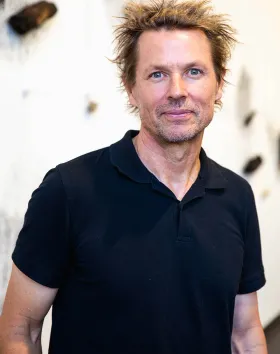
Robert Andrew
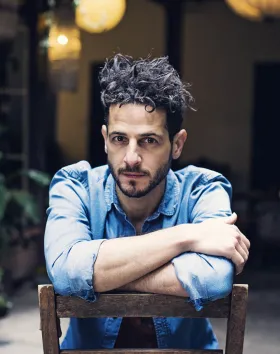
Lior Attar
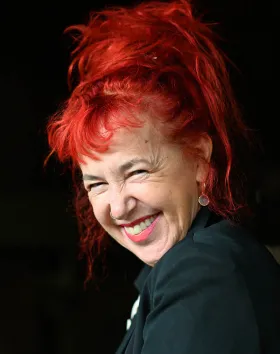
Isobelle Carmody
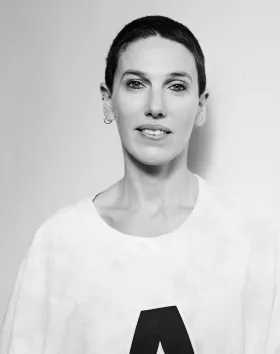
Samara Hersch
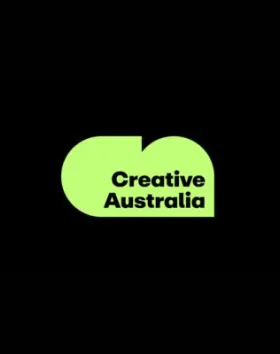
Victoria Hunt
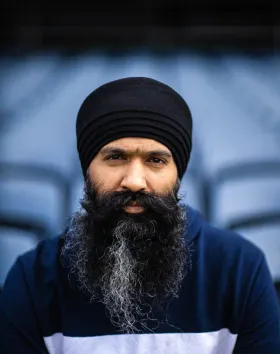
L-FRESH The LION
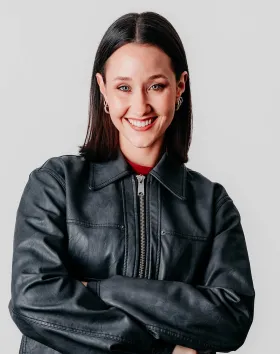
Ash McGregor
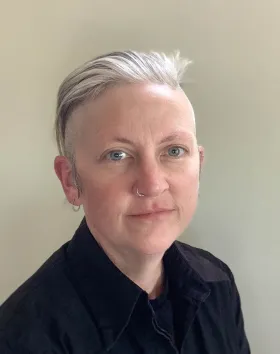
Jennifer Mills
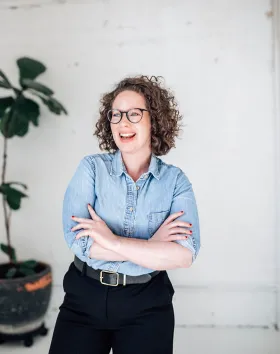
Fiona Murphy
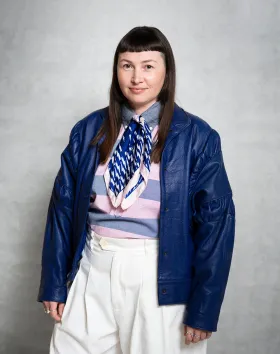
April Phillips
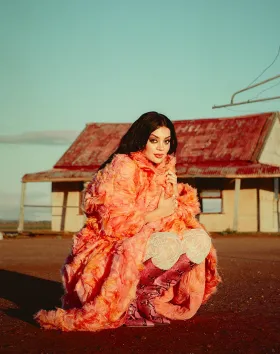
Thelma Plum
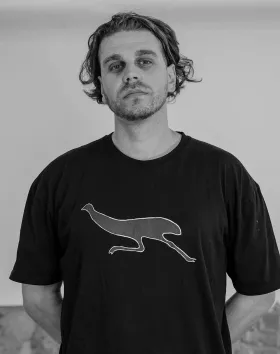
Daen John Sansbury-Smith
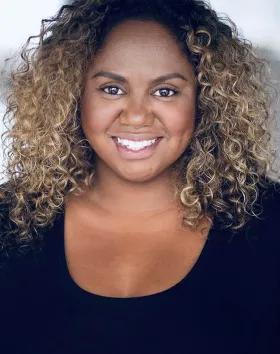
Maurial Spearim
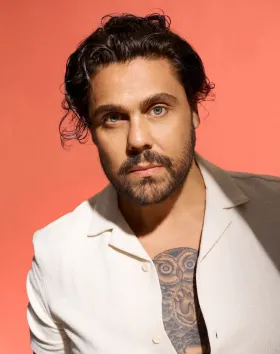
Dan Sultan
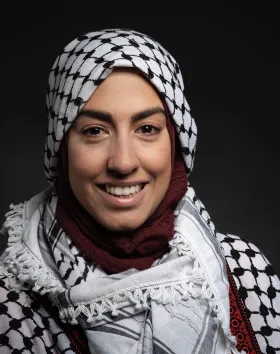
Aseel Tayah
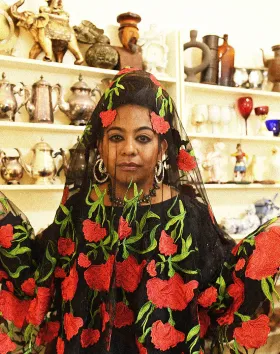
Emily Wurramara
Frequently asked questions
The application process
How do I use your Application Management System?
Download our FAQs for using the Application Management System in Word and PDF.
How many times can I apply?
You can only submit one application per closing date to each of the following categories: Arts Projects for Individuals and Groups, Fellowships and Arts Projects for Organisations.
When will I receive payment of the grant if my application is successful?
You will receive your grant payment within two weeks of accepting your funding agreement. Please note we pay our grants in the financial year which they are approved. We will not adjust payment timelines to the particular circumstances of individuals.
When is the deadline?
The deadline for applications is at 3:00pm AET on the closing date. We strongly recommend submitting before this. Administrative and technical support is only available during office hours (Monday-Friday) 9am to 5 pm AET. Late applications will not be accepted.
Do you accept applications and support material in languages other than English?
Please refer to the Languages Other Than English page.
Can I send an application by post?
We do not accept applications submitted via post. Any material received by post will not be assessed and will be returned to the sender. If you think you will have difficulty submitting your application online, please contact Artists Services.
Can my application be updated once it’s been submitted?
We do not amend, correct, update or change any part of your application once it has been submitted. However, if you receive additional confirmations for activities or artists after the closing date you may alert us to these, and we may bring them to the attention of peer assessors at the assessment meeting. These updates could include confirmation that a proposed activity will take place, a partnership has been secured, or funding from another source has been received.
You can update us about such confirmations by contacting us. Briefly describe the nature of the confirmation and cite your application reference number. You do not need to send us copies of confirmation emails from third parties – if we need to see evidence of the confirmation we will request it.
If you wish to update your application once it has been submitted, but the closing date has not yet passed, you can submit a new, updated application and request to withdraw the original one by emailing operationsservicedesk@creative.gov.au
How do I get an application form?
Grant applications can be found and are submitted through our online system. If you are using the system for the first time you will need to register your details before filling out a grant application form.
When will I be notified about the outcome of my application?
Applicants will be notified of the outcome of their application approximately 12 weeks after the closing date. Please see the guidelines page for the grant category you are interested in for more details.
Eligibility
Do you accept applications from all art forms and arts practice areas?
We accept applications in the following artforms and arts practice areas: First Nations Arts and Culture, Community Arts and Cultural Development, Emerging and Experimental Arts, Multi-Arts, Music, Dance, Theatre, Visual Arts and Literature.
If you are unsure of which assessment panel you should apply to, and for more information about what constitutes Community Arts and Cultural Development, Multi-Arts and Emerging and Experimental Arts, please refer to the Investment FAQs page.
What is the difference between a ‘group’ and an organisation?
We define a ‘group’ as two or more individuals who do not form a legally constituted organisation. This can include co-collaborators and collectives. Groups are not eligible to apply to programs open only to organisations.
An ‘organisation’ is a legally constituted organisation that is registered or created by law. For example, incorporated associations, companies limited by guarantee or government statutory authorities are all defined as organisations. Organisations that are not legally constituted are not eligible to apply for funding in grant categories that are open to organisations only. Organisations may be required to provide a certificate of incorporation or evidence of their current legal status. Funding programs for organisations are not intended for sole traders or partnerships.
If I apply to one of the government programs (Playing Australia, Contemporary Music Touring Program) delivered by Creative Australia, will this count as one of my applications to Creative Australia per year?
No, applying to a government program will not count as one of your applications to Creative Australia per year.
Are group made up of Australian and international artists able to apply?
Yes. However, the contact person for group applications must be an Australian citizen or permanent resident.
Can international organisations apply?
Yes, provided that the project that they are proposing directly benefits Australian artists or the Australian arts sector.
What is your definition of a practicing artist?
We provide funding to practising artists or artsworkers. While you may not regularly earn income from your practice, you must be identified and recognised by your peers as a practising artist or artsworker. This may include cultural practitioners, editors, producers, curators and arts managers.
I have a grant that has not been satisfactorily acquitted or is overdue. Am I able to apply?
No; if you have an overdue grant acquittal you will not be eligible to apply for any further grants.
Can I apply to the Aboriginal and Torres Straits Islander Arts Assessment panel?
The following eligibility requirements apply to applicants to the Aboriginal and Torres Strait Island Arts Assessment Panel:
- Individuals – must be Aboriginal or Torres Strait Islander
- Groups – the members of the group must be Aboriginal or Torres Strait Islander
- Organisations – the majority of the governing body of the organisation must be Aboriginal or Torres Strait Islander.
I am a foreign national living and working in Australia. Am I eligible to apply?
No; only Australian citizens and Australian permanent residents may apply for funding. Foreign nationals who are permitted to live and work in Australia by holding visas such as a Special Category visa or a Bridging visa are not eligible to apply.
What we fund
Do you fund creative research and development?
Yes. Creative research and development is a key component of the creative process and can be funded through our Arts Projects grants.
Do you fund artists working in languages other than English?
Yes. We accept applications in languages other than English, including Auslan.
If any part of your application requires translation into English, please contact the Artists Services team at least six weeks before the closing date of the round to which you intend to apply. We will use our best and all reasonable endeavours to assist in having some or all of the material translated. However we reserve the right to refuse an application in a language other than English if we believe there is no genuine reason to accept such an application, or if the time-frame for translation precludes us from making the materials available for assessment in the round to which it was submitted.
If you wish to request an application form in a language other than English, please contact the Artists Services team at least 12 weeks before the closing date of the round to which you intend to apply.
We reserve the right to refuse an application form translation request if we believe there is no genuine reason for the request. We also reserve the right to refuse an application form translation if the time-frame for translation prevents us from providing a translated form in time for assessment in the round to which it was submitted.
If you supply examples of creative content in a language other than English, we may engage an industry expert to give the peer assessors an evaluation of its artistic merit.
You can speak with our staff in your first language. Please telephone the Translating and Interpreting Service on 131 450 (local call anywhere in Australia) and ask to be connected with Creative Australia.
Do you fund study?
Applications that focus solely on academic studies, or are for activities that are part of assessable coursework are unlikely to be successful with our assessment panels. Assessment panels are also unlikely to support applications requesting the costs of academic fees or courses.
If you wish to apply for study costs, explain to the panel how your project extends, or supplements, the course’s standard curriculum requirements. Also, bear in mind that your project will be assessed on artistic merit of the work.
If you are applying for an Arts Projects grant for funding to complete a training program, course, workshop or diploma, explain how doing so will impact positively on your career or practice.
Do you fund feature film, television or documentary?
While we can support screen-based art, we do not generally support activities associated with feature film, television, or documentary. See Screen Australia, the Federal Government’s primary agency for production of Australian screen activity.
Do you offer quick response grants?
No, we do not offer quick response grants. Outside of our regular grants program, we do offer other grants and opportunities.
Do you fund early career artists?
Yes. Early career artists are eligible to apply for funding through our Arts Projects for Individuals and Groups grant and a number of other opportunities listed on our website.
Can we apply for a program of projects or activities under ‘Arts Projects – Organisations’?
Yes. Organisations can propose a program of projects and/or activities. This could be an organisation’s full artistic program for a given calendar year or more, for example.
We encourage applicants to be mindful of the following considerations:
- The activities should each contribute toward a clear, unifying overall objective – for example, the organisation’s artistic vision. It is important to demonstrate the rationale for the inclusion of these activities and how the overall program will align with the organisation’s vision.
- In proposing a program consisting of multiple projects or activities, it is possible that some individual projects may be less compelling than others. If you are submitting an application proposing multiple activities or projects, we encourage you to ensure that a similar level of consideration, planning, and artistic merit is common to each to avoid one component of your program potentially letting down the others.
- You may wish to consider using one of the three URLs you can provide as support material to link to a document that provides more detail about each individual project or activity in your program.
Your application
How is my application assessed?
Read more about how your application is assessed by Peer Assessor and Industry Advisors here.
Should I include information about the environmental impact of my project?
Yes, if relevant. If your project has an environmental impact, you should provide evidence of an environmental impact plan which may include cost-benefits. Arts On Tour’s Green Touring Toolkit provides detailed information and resources for artists and arts organisations on how to mount a sustainable tour.
How competitive are your grants rounds?
As a national arts funding body, all our grant rounds are competitive. Success rates are usually between 15% and 20%.
Does my project have to start by a specific date?
Yes. Projects must have a start date that falls after we notify you of the outcome of your application, and no later than one year from that date. We will notify you of the outcome of your application approximately 12 weeks after the closing date.
Should I apply to the Multi-art form assessment panel?
You can have your application assessed by the multi-art form peer panel if your project involves multiple separate art form-specific activities. This could include, for example: a festival that incorporates music, literature and theatre, or a project that has no one specific arts practice focus. However, if your project does involve more than one area of arts practice, you still have the option to choose one of the single art form panels, which you think will best relate to your work, to assess your application.
Our multi-art form assessment panels are made up of artists and arts workers from a range of art form areas. Peers may include those from specific art form areas (e.g., music or visual arts), peers who work across several art forms, and/or peers who work in interdisciplinary practice.
Should I apply to the Community Arts and Cultural Development panel?
Community Arts and Cultural Development practice is a community-based arts practice and can engage any art form. There are many variations of how community arts and cultural development works are made, developed and shared, and as such, there is no one model. What is at the core of this practice, however, is the collaboration between professional artists and communities to create art. The activity must be undertaken by with and for the communities involved. The artists and arts working facilitating the project should be highly skilled in these processes, and the activities should reflect the energy and qualities of the community.
Do I need to have confirmed venues or partners?
No. However, applications involving venues and partners are likely to be more competitive if their involvement is confirmed.
Should I apply to the Emerging and Experimental Arts panel?
In this context, the term ‘emerging’, refers to emerging art forms, not artists who are at the emerging stage of their careers.
Emerging and experimental arts practice is characterised by the exploration of challenging new concepts in the creation and experience of arts and culture. It plays with or invents new forms, methodologies, technologies or explores non-material ideas. These sometimes include art/science research collaborations, bio art, live art, socially engaged practices and new technologies.
If you’re unsure about which assessment panel to select, contact the Artists Services team.
How are applications to the First Nations Arts and Culture Assessment panel assessed?
The First Nations Arts and Culture assessment panel consists entirely of Aboriginal and Torres Strait Islander industry professionals across art forms and across states and territories.
We also encourage First Nations applicants to apply to other art form assessment panels (for example visual arts, music and literature).
How can I get assistance with my application?
Our staff are available to assist you in understanding the purpose of the grant, application requirements, and submitting your application. Staff can assist over email, phone and using Skype. We cannot review application drafts.
Additional support can be discussed where needed. Where the additional support required is beyond the scope of what our staff can provide, we may recommend speaking to an appropriate organisation for further assistance.
I am an artist working with a manager or producer. Should I or my manager be the applicant for my application?
The best applications are those where the voice of the artist comes through. Where possible you, as the artist, should write your application. Your manager or producer may administer the grant on your behalf to undertake the financial and reporting requirements.
Can I apply more than once in the same grant round?
No. You can only submit one application to the round.
Does my application for a group need an administrator?
If you are applying as an unincorporated entity, unincorporated association, or partnership you do not need to have an administrator for your grant. However, you must be able to provide an ABN and bank account that are in the group’s name. If you cannot do this, you must nominate an administrator. For more information about this, please contact us.
Do I need an ABN to apply for a grant?
All individual or organisation grant applicants based in Australia must have an active Australian Business Number (ABN). Individual applicants without an ABN may have their grant administered by an individual or organisation with an ABN. Organisations operating outside of Australia do not need an ABN to apply. Individuals based outside of Australia may not need an ABN to apply, depending on their circumstances (please check with your accountant or tax advisor).
The name of the applicant must match the name of the ABN and the name of the bank account we pay the grant into. There are no exceptions to this rule. If you cannot provide an ABN and bank account that are in the same name as the applicant, you will need to nominate an administrator for your grant.
For more information about this, please contact Artists Services.
Budgeting
Will receiving a grant affect my Centrelink payment?
Grants can be considered income by Centrelink. The amount is generally assessed as a lump sum and could affect your Centrelink payment for the financial year. Artists who are running a business (even on a small scale) may have their grant treated differently. It is possible to have your grant paid to an administering body if you wish.
Applicants should contact Centrelink on 13 28 50 for advice. Additionally, Centrelink’s Financial Information Service (FIS) is an education and information service available to everyone in the community and may be of benefit to applicants who also receive assistance through the social security system. To contact FIS phone 13 23 00.
Can I include artist fees in my budget?
Yes. We expects that artists professionally employed or engaged on funded activities will be paid for their work in line with industry standards. Payment of artist fees should be reflected in your application budget.
For more information, see our Payment of Artists page.
Can I include organisational administration costs?
Yes. Organisational administrative costs should be reasonable and directly related to project delivery. They should generally not exceed 10% of the total budget, although this will depend on the nature of the project. If those costs are higher, your application may be less competitive.
If I receive a grant, will my tax be affected?
Grants may be considered part of your income in a financial year and may be subject to tax. You must determine your own taxation liabilities. We suggest you consult your financial adviser or contact the Australian Taxation Office on 13 28 66.
Will the higher cost of some activities in regional places affect my application?
No. We encourage applicants whose projects will take place in regional and remote locations to budget accurately and realistically, we recognise that costs may differ between regions and major cities.
Should I include GST in my budget?
If you are GST-registered when you receive a grant, we’ll pay the grant amount plus GST. The budget provided in your application should be exclusive of GST.
Can I include disability access costs in my budget?
Yes. Access costs are viewed as legitimate expenses and may be included in an applicant’s budget.
We recognise that funding may be required for access costs incurred for applicants with disability, or for costs associated with working with artists with disability who have access needs (e.g., use of an interpreter, translation services, specific technical equipment, or support worker/carer assistance). We encourage you to ensure that your work is accessible to everyone. Therefore, your budgets may also include costs associated with making activities accessible to a wide range of people (e.g. performances using Auslan, captioning, audio description, temporary building adjustments, materials in other formats such as Braille or CD).
How do I enter my grant request?
The application form calculates your grant request as the difference between your total cash income, and your total cash costs. The gap between these two numbers is the grant request. In-kind contributions are not included in this calculation.
(Total cash costs) – (total cash income) = grant request.
For example:
($50,000 cash costs) – ($30,000 cash income) = $20,000 grant request.
Can I include childcare costs in my budget?
Yes. Childcare is a legitimate expense to include in your budget.
How important is it to have co-funding for your project?
We encourage our applicants to seek funding from other sources to cover the complete costs of their projects. While it does depend on the size of your grant request, we would expect that applicants with large requests would also secure funding from elsewhere to cover all costs associated with a large-scale project.
Can I include volunteer costs in my budget?
Yes. Volunteer out-of-pocket expenses, such as telephone calls or petrol for travel, are recognised as legitimate expenses and may be included in an applicant’s budget.
Can I include in-kind support for the project in my budget?
Yes. In-kind support refers to resources, goods and services (for example, use of a venue, materials, and people’s time) provided by yourself or others either free of charge, or below market value. Detailing in-kind costs in the budget is important as it gives peers a full understanding of the viability of your project and levels of support you are receiving. In-kind costs are also an expense so, when you save your application, any in-kind income you included will auto-populate to the expenses side of the budget.
Additional information
Handy tips for writing your grant application
Panel selection
When choosing the artform assessment panel for your application, consider which group of assessors will have the experience and background to best appreciate its merits. If you are not sure which panel to choose, contact us.
Project summary
Use this section to introduce yourself, your project partners and your project aims.
About you
- Introduce yourself or your organisation in more detail. Don’t assume the assessors are familiar with your work. Talk about your background, how you work, and what you value.
- Don’t use this section to simply list key achievements. You can attach a CV/bio that provides this information in the support material section.
About your project
- Speak in your own voice, using the first person.
- Be concise, clear, and succinct. Avoid jargon. Talk about the project in the way that you would with your peers and colleagues.
- Use bullet points and subheadings where appropriate.
- Avoid generalisations, repetition, and hyperbolic or unsubstantiated claims.
- If you are applying on behalf of a group or organisation, use this section to talk about your key collaborators and partners. How does the group or organisation function creatively? What do each of its members bring to the whole? How do you work together? What drew you to working with each other?
- If your project involves a major project partner, provide information about them and how they will be involved.
- Describe the project clearly in terms of ‘what,’ ‘why’ and ‘how’.
- Provide the context and background of your project.
- Focus on what makes your project distinctive, original, and innovative. How is it different from your past work? What do you expect the impact of your project to be for you, the arts sector and Australian culture?
- Make it easy for assessors to understand the creative rationale behind your project.
- Describe your expected outcomes.
- What are the ideas at the centre of your project? Why are those ideas exciting?
- How will the public experience the project?
- Explain the steps you are going to take to deliver your project.
- Provide a clear, detailed, well-planned timetable in the ‘Activity Details’ section. Use this section to show the major milestones, events, and stages in your project.
- Explain how your proposal is timely and time sensitive.
- Situate the project within the context of your career progression, or your organisation’s long-term objectives. Explain where you have come from, where you are going, and why this project will help take you there.
- Think about any questions and concerns that the assessors might have regarding your application. Try to answer these pre-emptively.
- Leave as little room for doubt or ambiguity as possible.
- Show that you have considered and planned for any risks associated with pandemic, flood, fire, or other force majeure events.
- Choose the elective third assessment criterion that relates most directly to your project’s strengths. Your choice should reflect the main outcome of your project.
- If your proposal involves working with First Nations artists, communities, or subject matter, you must provide evidence of genuine consultation and consent. It is essential to implement adhere to our First Nations Protocols and demonstrate the practical application of these in your budget by including appropriate fees for Elders and/or consultants. You can find the Protocols here.
- If your project involves community engagement and participation, provide evidence of genuine community consultation and support. Be sure to outline your community engagement strategy and show that the community supports the project.
- If you have any questions about your project, contact us.
Your Budget
- Ask for what you need. Don’t underestimate the cost of delivering your project.
- Pay all artists, including yourself, fairly. Where possible, use relevant industry awards and rates of pay. Show how you have calculated the wages and fees for those involved in the description field.
- Be detailed and transparent.
- Break down large budget items and show your calculations in the description field.
- Where possible, diversify your income sources.
- Include the value of in-kind contributions that are being offered to your project. In-kind contributions are goods or services that are offered free of charge or at a discounted rate.
- Consider how you will provide accessibility assistance for audience members and project participants. Include those costs in your budget.
- If you have any questions about your completing your budget, contact us.
Support Material
- Follow the limits set for support material in the published guidelines.
- Use the ‘Support Material’ section to include CVs and bios from your key collaborators and partners.
- Check your URLs to ensure that they work.
- Assessors will not access any URLs that require them to log in to, or sign up to, an online platform.
- If you use a file hosting system such as Dropbox or WeTransfer, make sure your links are public and have not expired.
- Supply high-quality, relevant support material. It should demonstrate the merit and ideas of your project. Where you have collaborators, include examples of their work.
- Ensure your support material corroborates the claims you have made in the written component of your application.
- Provide letters of support. These should demonstrate that your work is held in high regard by others, especially those involved in the project.
- If you have any questions about your support material, contact us.
Before you submit your application
- Reread your application carefully before you submit it, checking for errors.
- Consider asking friends or colleagues who are familiar with your work to review your draft application.
- If you are having trouble submitting your application, contact us well before the closing date and time.
After you apply
Once you submit your application, we will send you an email acknowledging that we have received your application. After we receive your application, we first check it meets the eligibility criteria for the grant or opportunity to which you are applying. Applications to our grant programs are assessed by arts practice peer panels using the published assessment criteria for the relevant grant program. We aim to notify you of the outcome of your application no later than 12 weeks after the published closing date for the grant round.
Successful applications
Once all applications have been assessed, you will be contacted about the outcome of your application. If you have been successful, you will also be sent a funding agreement. This outlines the conditions of funding, how you will be paid and your grant reporting requirements.
Grant agreements
If your application is successful, you will receive an email telling you a grant is offered. You must then agree to the conditions of your grant, which represents our contract with you – this can be done online, by email or by letter. Payment of a grant will not be made until the grant conditions have been agreed and accepted by all the relevant parties. You should not start a project that depends on a grant until all relevant parties have agreed and accepted the grant conditions and we have evidence of this acceptance on file.
Standard grant conditions require you to, among other things:
- seek approval before making a change to a funded project (for example, changes in the activity budget; changes to key creative personnel; or changes to start or end dates)
- respond to our requests for information about the project or grant
- satisfactorily account for how the grant is spent (if you do not you will be required to return all the money which you cannot satisfactorily account for)
- comply with all relevant laws
- acknowledge our support in all promotional material associated with the project, including use of the Creative Australia logo and a standard text of acknowledgement
- provide artistic and financial acquittal reports at the end of the project
- return any unspent grant funds at the completion of your project or on notice from us to return such unspent funds.
Grant agreements must be signed by a legal entity – either a legally constituted organisation or an individual. For unincorporated groups, see the section on administered grants.
All individual or organisation grant applicants based in Australia must have an ABN. Individual applicants without an ABN may have their grant administered by an individual or organisation with an ABN. Organisations operating outside of Australia do not need an ABN to apply. Individuals based outside of Australia may not need an ABN to apply, depending on their circumstances (please check with your accountant or tax advisor).
The name of the applicant must match the name of the ABN and the name of the bank account we pay the funds into. There are no exceptions to this rule. If applicants cannot provide an ABN and bank account that are in the same name as the applicant’s name, they will need to nominate an administrator for their grant.
Groups/ensembles/collectives, unincorporated associations/ unincorporated entities and other bodies with no legal status do not need an administrator if they have an active Australian Business Number (ABN) and bank account in their name. If they are unable to provide an active ABN and bank account that matches the name of the applicant, they must nominate an administrator. The name of the administrator must match the name of the ABN and bank account into which we pay the funds if the application is successful.
Grant payments
If we approve your application you will need to accept the conditions of the grant in a funding agreement. After you accept your funding agreement online, we will automatically generate a payment for the grant on your behalf. You do not need to send us an invoice. After you accept the funding agreement, we will pay the grant directly into your nominated bank account within two weeks. Grant payments cannot be postponed. If you do not wish to have the grant funds paid directly into your bank account, you can choose to have your grant administered by another individual or legally constituted organization. Please note this does not apply to Arts Projects – Organisations. When you apply, you will be asked to provide an active Australian Business Number or ‘ABN’. The ABN that you provide must match the name of the applicant (or the administering body, if you have nominated one). When you accept your funding agreement, you will be asked to enter the details of the bank account you wish the grant to be paid into. The name associated with that bank account must match the name in which the ABN has been registered.
Logo downloads
Acquitting your grant
When you have completed your project, you must acquit your grant by providing a grant report. The grant report provides detail on your funded activities and how the funding was spent. Please read your funding agreement to check details of the grant acquittal material you should provide. The grant report is where you tell us:
- how you spent your grant
- what the artistic outcomes of your funded activity were.
If you do not provide a satisfactory grant report, we will not make any further payments that may be due to you, and you will not be eligible to apply for further grants. We may also ask you to pay back all or part of the funding provided to you. We use grant reports to fulfil obligations of accountability to the Australian Government. They are also essential to the development work of Creative Australia. The reports help us evaluate the achievements of funded activities, monitor the effectiveness of grant categories and ensure our policy development is consistent with the experience of artists in the field.
Reporting for Multi-year Funded Organisations
Organisations that receive multi-year funding are required to submit financial, statistical, and artistic reporting on an annual basis. All reporting is submitted online via our arts organisations reporting system. If you are not sure what reporting you need to submit as part of your annual reporting, or what information to provide, please get in touch.
Acknowledging Creative Australia funding
All recipients must acknowledge that Creative Australia provided funding for their activities. When you acquit your grant, we will ask you how you acknowledged us. For printed or online material use our logo and this phrase:
This project has been assisted by the Australian Government through Creative Australia, its principal arts investment and advisory body. OR,
(Company Name) is assisted by the Australian Government through Creative Australia, its principal arts investment and advisory body.
Where projects do not have a public outcome, or do not produce any printed or online material, you will need to think about how best to acknowledge Creative Australia funding.



